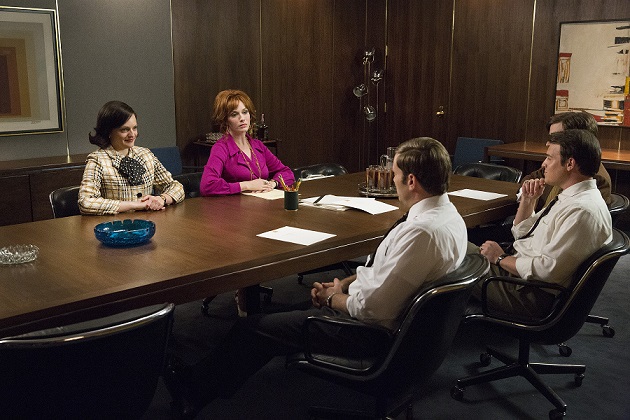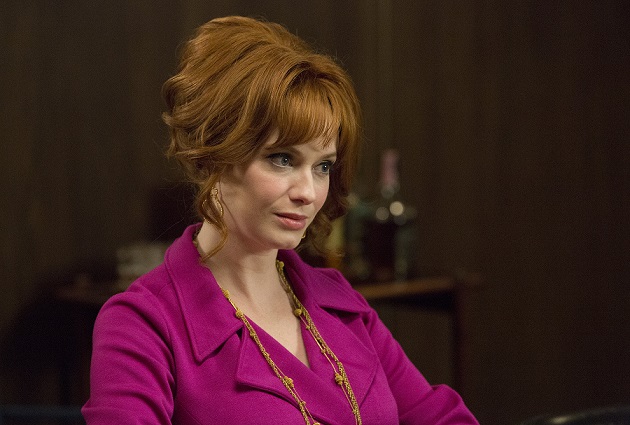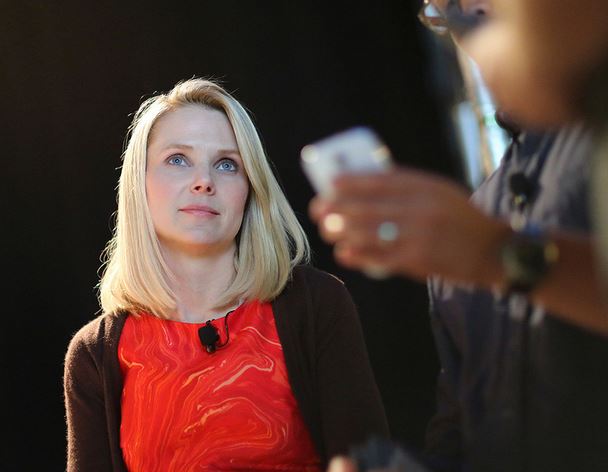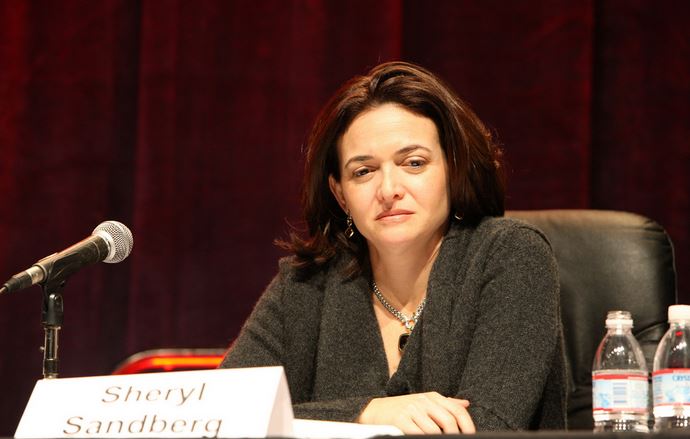The Sexism No One Really Talks About

By:
Sexism exists in many forms, particularly in professional settings, as demonstrated by Ellen Pao's recent lawsuit against former employer Kleiner Perkins Caulfield & Bryers, a venture capital firm in Silicon Valley. Pao, who lost the case, argued that she was the victim of more nuanced gender discrimination after reporting unwanted sexual advances to her supervisor. In performance reviews, for instance, she was critiqued for having "sharp elbows." Some of her male colleagues got similar feedback, the difference being the men received promotions, and she did not. A group of her male colleagues also organized a skiing trip that excluded women.
RELATED: This Powerful Cartoon Nails the Problem With Restaurant Sexism
These might not seem like outright sexist moves, but they're proof that you don't need to experience Mad Men-style gender dynamics to be disrespected by male colleagues. What Pao endured is commonly referred to as subtle sexism, which in some ways is worse than brazen sexism because it's so hard to prove, as Pao learned the hard way.

Research on subtle sexism and examples in the media.
Two years ago, Penn State's Theresa K. Vescio presented her research on subtle sexism at the Harvard Business School Gender & Work Conference, highlighting that women perceived as "warm and communal" might be more often protected and provided for by men. According to Vescio's findings, it can also give men a superiority complex and make them more condescending. An earlier Penn State study on subtle sexism and benevolent sexism (complimentary remarks about women) confirmed that they can be damaging to a woman's career.
RELATED: 8 Memes That Will Help You Fight Sexism
"The downside of benevolent sexism is women are perceived as weak and incompetent and not suitable for powerful positions," said co-author Julia Becker, who studied different types of sexism in her research.
Photo: Marissa Mayer, Yahoo! CEO. TechCrunch/Flickr
Vescio described the subtle sexism in the media's treatment of Yahoo! CEO Marissa Mayer when she first accepted the job. At first, Mayer was frequently called the "hottest CEO" around. Then, rumors circulated that she had been difficult to work with during her days at Google, and reports about her shortcomings quickly began to surface. In Nicholas Carlson's new book about Yahoo!, he makes a point to discuss Mayer's appearance. In it, he described an all-hands meeting in which Mayer appeared different than she did for a magazine shoot, "That Thursday in November, Mayer looked like a different person. She looked agitated. Nervous. Her hair was wet. She wore no makeup." Carlson mentions her wet hair once again in the book, seemingly fixated with her grooming process, "Mayer explicitly rejects feminism— and she has shown up to the most important meetings of her life with wet hair and no makeup on."
RELATED: Four Absurd Examples of Sexism in Science
As noted by Vescio, even Facebook CEO Mark Zuckerberg was guilty of subtle sexism when he mentioned Facebook COO Sheryl Sandberg's skin while introducing her, "Sheryl and I met at a party and we immediately hit it off … When I met Sheryl, the first thing I said was that she had really good skin ... and she does."
TechCrunch50-2008/Flickr
What other women have experienced subtle sexism?
Immediately following the Pao verdict, New York Magazine writer Annie Lowrey wrote about the discreet sexism she's faced at D.C. social gatherings where work is a major conversation topic.
"Cocktail Party Guy asks my husband about how things are going at his news site, and he answers. Then Cocktail Party Guy asks me how our dogs are, and I answer, before pivoting the conversation back to work ... One of us gets asked about our work. One of us gets asked about our dogs."
RELATED: Emma Watson Just Explained How the Fashion Industry Is Broken
Lowrey explained how difficult it can be to pinpoint this type of sexism.
"It is a form of soft discrimination that I fear might be all too familiar to all too many women — and often I find it hard to explain to my male friends and colleagues," she wrote. "Occasionally, I even find myself struggling to convince them that it is discrimination, and that it has consequences."
Jezebel, a blog covering women's issues, asked commenters to share their stories of "soft sexism" in the lawsuit aftermath as well. The anecdotes confirmed that this happens a lot. "I work in transportation and man, it’s all so subtle," one woman wrote. "Customers greet me with ‘hey gorgeous.’ I get asked to water plants I have no ownership of. I develop a good relationship with a customer and ‘they have a crush on me’. I had a male coworker call me Sweetie once."
Another commenter wrote that she was slighted for sitting by the coffee maker and never brewing a new pot.
"When I started working at my job, the coffee maker was by the copier and lots of colleagues would ask why I didn’t start a new pot of coffee since I was at the copier. I was second in command of the finance department and yet I was still expected to make coffee when someone else had clearly emptied it because I am female and within proximity of the machine. I gave the same response every time someone snarked or thought they were clever about it: 'I do not drink coffee and am not responsible for that machine. Find the person who emptied the pot and walked off.' Still took a year to stop being asked to make the coffee."
When sexual harassment comes into play.
In addition to arbitrary demands specific to females, sexual harassment plays a huge role in subtle sexism, and sometimes women don't even see it's happening to them. Earlier this year, MSNBC's The Cycle did a segment about Cosmopolitan magazine's survey that found one in three women ages 18-34 has been sexually harassed at work. The survey revealed that some women don't realize they're being sexually harassed as this kind of harassment is often "a little more subtle" than the Mad Men era, as MSNBC host Krystal Ball put it.
"There's some confusion about it," Michelle Ruiz, Senior Editor of Cosmopolitan, said on The Cycle. "I think the workplace has become more casual. You might be Facebook friends with your boss. The more we talk about it, hopefully the less there will be ... We tend to think of sexual harassment as this ... lecherous boss who's threatening you and saying, 'Either sleep with me or get fired,' or 'Sleep with me and get promoted' when in fact our survey ... found it's more subtle ... There are more ways than ever to creep on someone at work."
How to confront soft sexism.

Caryl Rivers, a Boston University journalism professor and co-author of 2013 book The New Soft War on Women: How the Myth of Female Ascendance Is Hurting Women, Men-and Our Economy, co-wrote a long piece about Pao's case and told ATTN: that she believes things would have been very different had Pao been male.
"If her name had been Alan Pao and she'd behaved in much the same way, if she'd been very aggressive, if she'd had 'sharp elbows,' I think the outcome would have been very much different," Rivers told ATTN:. "She seemed to have behaved in some ways like [your typical] guy who goes into high tech, and I think she was kind of shocked to see that it cost her."
When asked how lower level employees should handle instances of soft sexism, such as being expected to cook food for the office or fielding inappropriate comments from male coworkers, Rivers said it's important to confront a higher up and explain the situation.
"If women are forceful, they're often thought of as bitches," Rivers said to ATTN:. "So perhaps when you haven't got a lot of power, one of the things that unfortunately women have to do that men don't is make their case but in a way that doesn't seem as if they're wading in with their elbows flying. Sometimes it's helpful to enlist the aid of someone who's maybe more senior [to go up to the purveyor of soft sexism and say], 'Hey look, it's really not part of this person's job to cook' or 'Hey Charlie, you may be 55 and not quite realizing it, but it's not OK to comment on a woman's appearance these days.' It's tough for women because it's so easy to get that reputation as a bitch. I think there's this tension between standing up for yourself and also not being disliked. Women have to walk a very delicate line between the two."
Feminist writer and activist Soraya Chemaly told ATTN: that it's hard to know how to tackle subtle sexism as so many workplaces vary in size, structure, and culture.
"I think that every single one of these instances is really contextual," Chemaly told ATTN:, adding you have to consider what kind of company the person works with, if there's a human resources department, and whether the business has a sexual harassment policy in place. Chemaly went on to say people at smaller, newer companies might be at a disadvantage without specific sexual harassment protocol in place.
"I think it's kind of impossible from my perspective to say, 'here's a blanket approach,' but I think people really need to understand the setting that they're working in so that they can deliberately respond in a way that makes the most sense," Chemaly told ATTN:. "If you have an HR department that has been explicitly vocal about this, you're in a much better position than if you're in a startup where there are fifteen men and two women and no structure at all."
Chemaly went on to say that the root of workplace sexism is the dearth of female executives, "There is overt sexism, and there is the kind of [sexism that makes you ask] 'how do we deal with jokes' or 'how do we deal with certain physical activity.' But more than that is the institutionalized bias that results in there being no women in leadership or very few women in leadership. And that's a looming issue in all of this."
How Pao's experiences showed men that subtle sexism exists.
Pao, now the interim CEO of Reddit, recently told The Wall Street Journal that her highly publicized story spread awareness about subtle sexism in America.
"Women who felt like they were uncomfortable before, that there was something that just wasn’t right, are hopefully now more comfortable pointing it out. They’re now able to point to discussions and research about it," she said.
Pao added that a man reached out to say he's observed subtle sexism since hearing about what happened to her.
Chemaly told ATTN: there's another upside to Pao's widely discussed case: more women are speaking out about their experiences with subtle sexism, as demonstrated in Jezebel and Lowrey's pieces.
"[Pao] individually lost, but I think it's a net gain because she's really established a precedent for other women and you can see this in the class action suits that are surfacing on Twitter and Facebook," Chemaly told ATTN:. "I think all of these cases show how subtle, nuanced, and pervasive gender-based harassment is. The sad thing is it takes so much time and energy and so many people coming forward to establish even the lowest baseline credibility bar."
Towards the end of Pao's trial, two former Twitter and Facebook workers filed separate lawsuits against the companies for gender discrimination against women.


